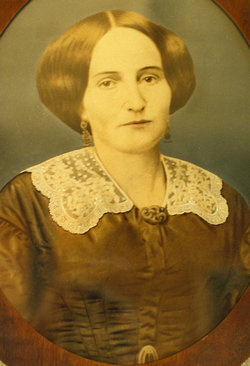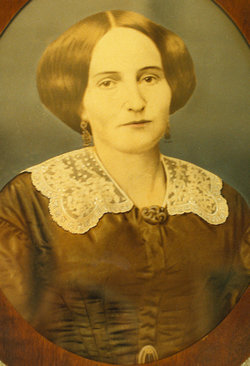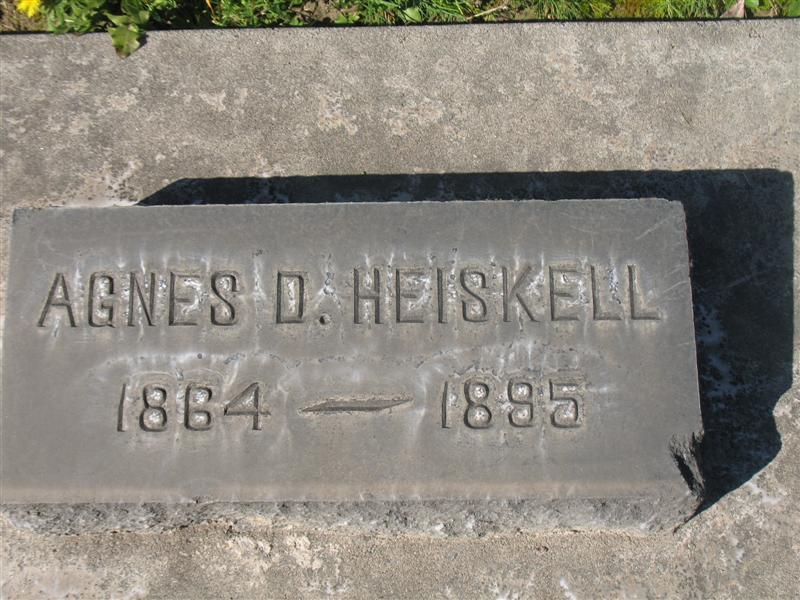The year of 1876 with all its momentous events, its joys and griefs, its golden sunshine, and its dark shadows, will soon have passed away into the womb of time and a new year is about to dawn upon us. It is usual for persons of both sexes, with the advent of a new year, to form resolutions to improve upon the past in the observance and practice of everything which may tend to make themselves happy and also to contribute to the happiness of those around them. May our resolutions having such in view be ever adhered to, improve our minds with sterling truth, and fill our hearts with noble virtues.
Winter is upon us and soon the sky will be overcast with clouds, the rains will descend and cold and dreary will appear in our hills and valleys and plains, but the rains will fructify the earth, and in a few short months Spring will come, when the mountains and the hills, the dells and glens, the valleys and plains, will resume their beautiful mantles of green, and all nature smiles in the face of the serene heavens. Wild flowers of every dye will blush and bloom everywhere before our sight. Little birds on wanton wing will fill the groves with their matins and their vespers and all day long the very air with their melody. Rivers will flow from their sources, through wild canyons, and then meander through the plain and singing as they go, and sparkling rills flooded with sunshine will warble their ballads, keeping cadence with the song of birds. Oh! How lovely then will be the region we inhabit! Our lot has indeed been cast in pleasant places. If it were Spring and Summer all the year with us, as in some portions of the world, we would not be able to appreciate the glories they unfold to us when they come after the storms, the rains, the cloudy skies, and boisterous winds of winter.
We should be grateful, as I hope we are, for the many advantages we enjoy through our affectionate parents, for the supply of all our wants, for the gratification of our tastes and pleasures and recreations. Let us ever then be obedient and loving to our parents, and obedient to our kind teacher who strives to impart knowledge and instill into our minds a virtuous education to fit us for the duties that may be in store for us to perform, that we may become helpers and a blessing to all around us and a very joy to those with whom we may become more immediately associated.
But a few years have gone when no sound was heard in those hills and the plains but the lowing of wild cattle, the hoot of the owlet, and the sharp bark of the coyote, and that awakened by the woodpecker tapping the hollow oak tree. Now we see cozy homes everywhere with peace and plenty within their doors, and hear the merry voices of children ringing out upon the air, while from the plain comes the shrill scream of the whistle of the locomotive, and the thunder of the cars rushing on-on with tireless velocity and waking the echoes which had slumbered in the hills and mountains for a thousand years.
How proud we should be of our dear state, California, and of our whole country.
What can be grander, or more sublime, than the rising and setting of the sun? First we behold, with early morn, a faint flush of crimson in the eastern sky heralding the approach of the great god of day - now it expands and extends upwards, then his disc appears, peering over the mountain top, slowly, slowly, softly, softly he ascends – larger and larger and then as if by magic, and in full glory, mounts into the firmament and hill and mountain, valley and plain, rivers and rill, lake and ocean afar are flooded with diafonous light, and then again behold his setting, yonder he seems to sit motionless, as it were for a minute, on the verge of the western horizon as if surveying and loathe to leave the scene he had fructified with his hallowed influence. Slowly, but larger in his decline, slowly, slowly, softly, softly descends, and at last sinks beneath the horizon onto his western bed, leaving behind him a luminous long belt of crimson and emerald, of amethyst and chalcedony, and purple and golden dyes, which soon, however, fade from our vision and all is gray!
Then comes forth the moon, pale empress of the night – Sweet Luna, now in her chariot, she walks her orbit in the firmament and with myriads of stars shedding their calm light upon the sleeping earth!
One would think that the poet, Montgomery1, had California in view when he gave utterance to the grand apostrophe thus:
"There is a land of every land the pride,
Beloved by Heaven over all the world beside,
Where brighter suns dispense serene light,
And milder moons emparadise the night.
A land of beauty, virtue, valor, truth,
Though untutored age of love's exalted youth.
The wandering mariner whose eye explores,
The loveliest isles and earths enchanting shores,
Views not a land more beautiful and fair,
Nor breathes the spirit of a purer air,
In every clime the magnet of his soul,
Touched by remembrance, trembles to that pole.
There is a spot of earth supremely blest,
A dearer sweeter spot than all the rest.
Where shall the land that spot of earth be found?
Art thou a man – a patriot – look around,
Oh thou shall find, wherever thy footsteps roam,
That land's thy country, and that spot thy home."
In conclusion, oh let us remember our creator in the days of our youth while the evil days come not, or the years draw nigh when we would say we can have pleasure in them. Our creator, our Father in Heaven, our God. Is it not terrible to think that there are human beings on this earth who deny the existence of a God! Hear what a great writer2 said when contemplating such fearful reality that there are some who say there is no God! "There is not a flower that blossoms in the garden but preaches that there is a God, nor a leaf that twinkles in the sunbeam, nor a cloud that passes over the moon, nor an insect that in the breath of the gale or creates a tiny tempest on the waves of the pool but repeats and re-echoes the testimony that there is a God! Where the lion roars it out amid his native wilds and the humming-bird says it in every color of her plumage and every wafture of her wing; where the eagle screams up the tidings to the sun; and the sun in reply writes them round the burning iris of the eagle's eye; where the thunder, like a funeral bell hung aloft in the clouds, tolls out there is a God and the earthquake mutters and stammers the same great truth below, where snow in it's silence, and storm in it's turmoil, summer in it's beauty and winter in it's wrath; the blossoms of spring and the golden glories of Autumn alike testify to a God; where the ten thousand orators of nature – the thunder bolts, the hailstones, the rain-drops, the winds, the ocean waves, the lightnings of the sky, and the cataracts of the wilderness, are all crashing out, blazing out, thundering out, whispering out, and murmuring out the true and solemn tidings that there is a God!"
Oh, I repeat this, let us remember our creator in the days of our youth while the evil days come not, or the years drawnigh when we could say we have pleasure in them3.
Agnes Daulton
1876 Age 12
1James Montgomery (November 4, 1771 - April 30, 1854) was a British poet.
2quoting George Gilfillan (January 30, 1813 – August 13, 1878), a Scottish author.
3quoting Ecclesiastes 12.1
The year of 1876 with all its momentous events, its joys and griefs, its golden sunshine, and its dark shadows, will soon have passed away into the womb of time and a new year is about to dawn upon us. It is usual for persons of both sexes, with the advent of a new year, to form resolutions to improve upon the past in the observance and practice of everything which may tend to make themselves happy and also to contribute to the happiness of those around them. May our resolutions having such in view be ever adhered to, improve our minds with sterling truth, and fill our hearts with noble virtues.
Winter is upon us and soon the sky will be overcast with clouds, the rains will descend and cold and dreary will appear in our hills and valleys and plains, but the rains will fructify the earth, and in a few short months Spring will come, when the mountains and the hills, the dells and glens, the valleys and plains, will resume their beautiful mantles of green, and all nature smiles in the face of the serene heavens. Wild flowers of every dye will blush and bloom everywhere before our sight. Little birds on wanton wing will fill the groves with their matins and their vespers and all day long the very air with their melody. Rivers will flow from their sources, through wild canyons, and then meander through the plain and singing as they go, and sparkling rills flooded with sunshine will warble their ballads, keeping cadence with the song of birds. Oh! How lovely then will be the region we inhabit! Our lot has indeed been cast in pleasant places. If it were Spring and Summer all the year with us, as in some portions of the world, we would not be able to appreciate the glories they unfold to us when they come after the storms, the rains, the cloudy skies, and boisterous winds of winter.
We should be grateful, as I hope we are, for the many advantages we enjoy through our affectionate parents, for the supply of all our wants, for the gratification of our tastes and pleasures and recreations. Let us ever then be obedient and loving to our parents, and obedient to our kind teacher who strives to impart knowledge and instill into our minds a virtuous education to fit us for the duties that may be in store for us to perform, that we may become helpers and a blessing to all around us and a very joy to those with whom we may become more immediately associated.
But a few years have gone when no sound was heard in those hills and the plains but the lowing of wild cattle, the hoot of the owlet, and the sharp bark of the coyote, and that awakened by the woodpecker tapping the hollow oak tree. Now we see cozy homes everywhere with peace and plenty within their doors, and hear the merry voices of children ringing out upon the air, while from the plain comes the shrill scream of the whistle of the locomotive, and the thunder of the cars rushing on-on with tireless velocity and waking the echoes which had slumbered in the hills and mountains for a thousand years.
How proud we should be of our dear state, California, and of our whole country.
What can be grander, or more sublime, than the rising and setting of the sun? First we behold, with early morn, a faint flush of crimson in the eastern sky heralding the approach of the great god of day - now it expands and extends upwards, then his disc appears, peering over the mountain top, slowly, slowly, softly, softly he ascends – larger and larger and then as if by magic, and in full glory, mounts into the firmament and hill and mountain, valley and plain, rivers and rill, lake and ocean afar are flooded with diafonous light, and then again behold his setting, yonder he seems to sit motionless, as it were for a minute, on the verge of the western horizon as if surveying and loathe to leave the scene he had fructified with his hallowed influence. Slowly, but larger in his decline, slowly, slowly, softly, softly descends, and at last sinks beneath the horizon onto his western bed, leaving behind him a luminous long belt of crimson and emerald, of amethyst and chalcedony, and purple and golden dyes, which soon, however, fade from our vision and all is gray!
Then comes forth the moon, pale empress of the night – Sweet Luna, now in her chariot, she walks her orbit in the firmament and with myriads of stars shedding their calm light upon the sleeping earth!
One would think that the poet, Montgomery1, had California in view when he gave utterance to the grand apostrophe thus:
"There is a land of every land the pride,
Beloved by Heaven over all the world beside,
Where brighter suns dispense serene light,
And milder moons emparadise the night.
A land of beauty, virtue, valor, truth,
Though untutored age of love's exalted youth.
The wandering mariner whose eye explores,
The loveliest isles and earths enchanting shores,
Views not a land more beautiful and fair,
Nor breathes the spirit of a purer air,
In every clime the magnet of his soul,
Touched by remembrance, trembles to that pole.
There is a spot of earth supremely blest,
A dearer sweeter spot than all the rest.
Where shall the land that spot of earth be found?
Art thou a man – a patriot – look around,
Oh thou shall find, wherever thy footsteps roam,
That land's thy country, and that spot thy home."
In conclusion, oh let us remember our creator in the days of our youth while the evil days come not, or the years draw nigh when we would say we can have pleasure in them. Our creator, our Father in Heaven, our God. Is it not terrible to think that there are human beings on this earth who deny the existence of a God! Hear what a great writer2 said when contemplating such fearful reality that there are some who say there is no God! "There is not a flower that blossoms in the garden but preaches that there is a God, nor a leaf that twinkles in the sunbeam, nor a cloud that passes over the moon, nor an insect that in the breath of the gale or creates a tiny tempest on the waves of the pool but repeats and re-echoes the testimony that there is a God! Where the lion roars it out amid his native wilds and the humming-bird says it in every color of her plumage and every wafture of her wing; where the eagle screams up the tidings to the sun; and the sun in reply writes them round the burning iris of the eagle's eye; where the thunder, like a funeral bell hung aloft in the clouds, tolls out there is a God and the earthquake mutters and stammers the same great truth below, where snow in it's silence, and storm in it's turmoil, summer in it's beauty and winter in it's wrath; the blossoms of spring and the golden glories of Autumn alike testify to a God; where the ten thousand orators of nature – the thunder bolts, the hailstones, the rain-drops, the winds, the ocean waves, the lightnings of the sky, and the cataracts of the wilderness, are all crashing out, blazing out, thundering out, whispering out, and murmuring out the true and solemn tidings that there is a God!"
Oh, I repeat this, let us remember our creator in the days of our youth while the evil days come not, or the years drawnigh when we could say we have pleasure in them3.
Agnes Daulton
1876 Age 12
1James Montgomery (November 4, 1771 - April 30, 1854) was a British poet.
2quoting George Gilfillan (January 30, 1813 – August 13, 1878), a Scottish author.
3quoting Ecclesiastes 12.1
Family Members
Advertisement
Advertisement





















